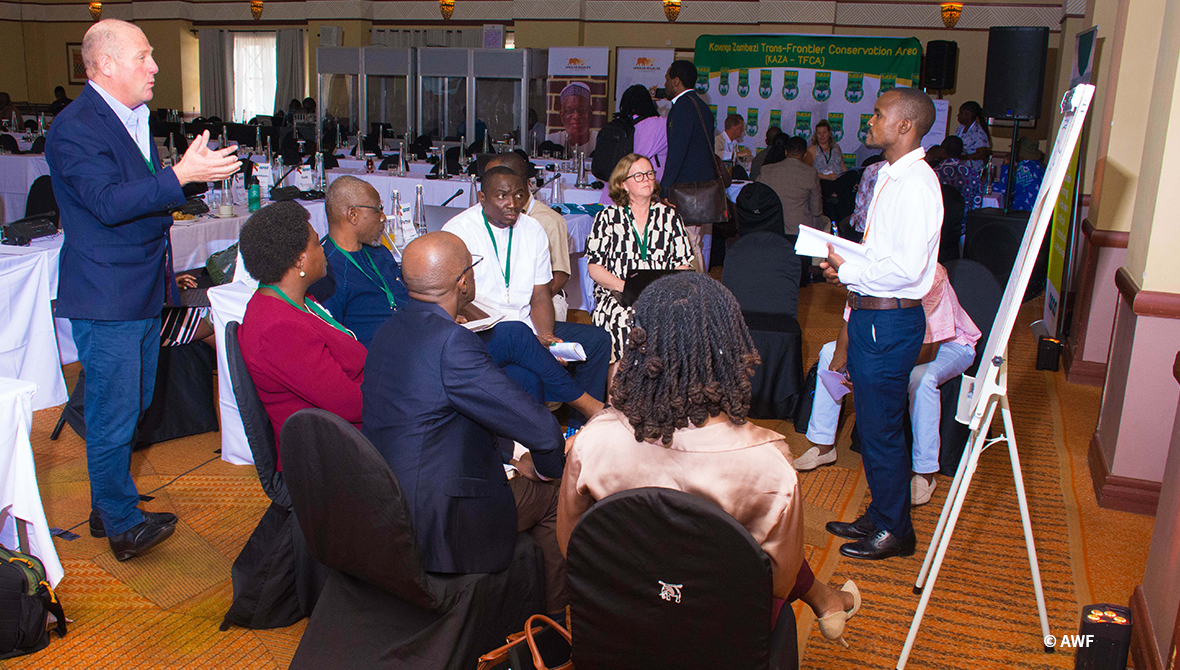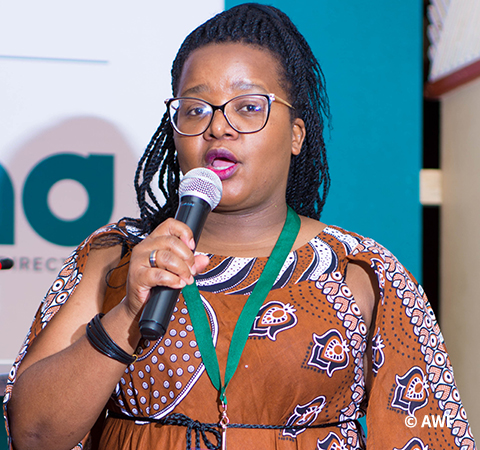APAD conference explores sustainable funding and empowering partnerships

The second day of the Africa Protected Areas Directors Conference (APAD) 2024 underscored the critical need for innovative financing mechanisms and collaborative partnerships to ensure the long-term success of Protected and Conserved Areas (PCAs) across Africa.
Prof. Patience Gandiwa, Director and Technical Advisor-International Conservation Affairs at the Zimbabwe Parks and Wildlife Management Authority (Zimparks), highlighted the concept of A Pan African Conservation Trust (APACT). Prof. Gandiwa emphasized the urgent need to design a sustainable financing mechanism for the entire network of Africa’s Protected and Conserved Areas (PCAs). She highlighted the consensus that APACT should be a hybrid financing mechanism, acting as an endowment to support funding for critical PCAs. To succeed, APACT must provide equitable access to funding, ensure transparency and good governance, minimize administrative burdens, address core funding needs of PCAs, maximize synergy with existing conservation trust funds, and facilitate private investment in Africa’s protected areas.
Stefanie Lang, Executive Director of the Legacy Landscapes Fund, highlighted the importance of sustainable finance for PCAs and communal areas. She emphasized that achieving the 30x30 Convention on Biological Diversity (CBD) Cop goal by 2030 requires predictable, long-term funding integrating biodiversity, climate, and development goals, offering program flexibility, supporting large-scale conservation efforts, utilizing diverse funding sources, and establishing a unified reporting framework.
The second day also featured key presentations on community conservation and Protected and Conserved Areas (PCAs) governance models during an opening plenary session. This session set the tone for discussions about improving PCA management and governance, exploring the crucial role of PCAs in Integrated Landscape Management (ILM) for climate change adaptation and mitigation.

The APAD Conference 2024 concluded the day with parallel sessions on Indigenous Peoples and Local Communities (IPLCs) and youth engagement. Stakeholders delved into issues and recommendations anchored on community-led conservation as a critical element in climate adaptation and mitigation. They emphasized the need for community engagement in conservation, ensuring tangible conservation benefits for communities to foster ownership. The use of indigenous knowledge in addressing climate change impacts and the definition of alternative livelihood sources for local communities were also discussed.
In the youth parallel session, participants identified priorities for African conservation aligned with global agreements and discussed collaboration with APAD. They emphasized the need for youth involvement in decision-making, active participation in conservation efforts, access to mentorship programs, and educational reforms to address skill gaps. Developing future conservation leaders through succession planning, especially considering new technologies, was acknowledged as crucial.
As the conference enters its final day, discussions will focus on recommendations, partnerships, and high-level outcomes critical for PCA and communal areas management. This collaborative effort is essential for shaping the future of conservation in Africa.
